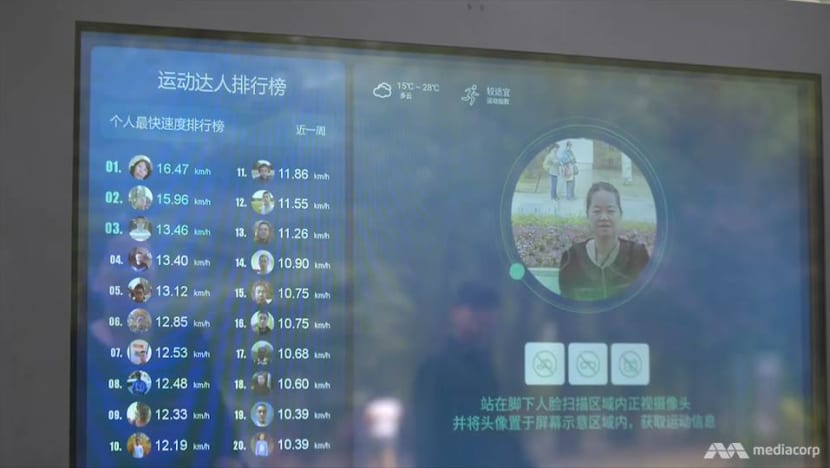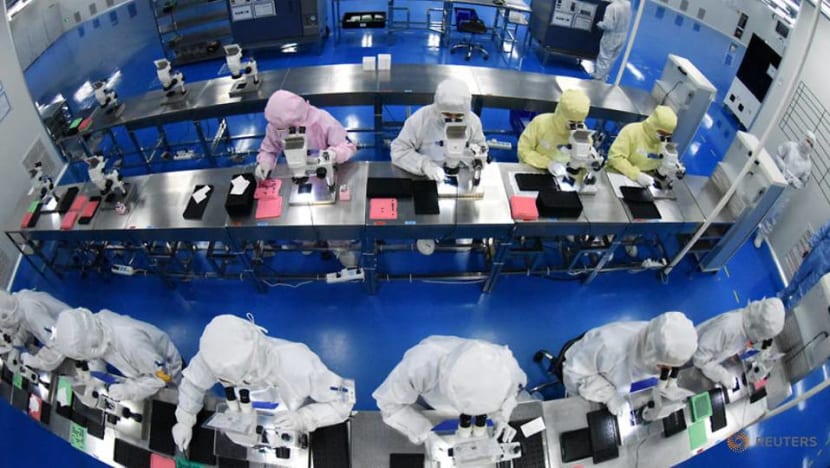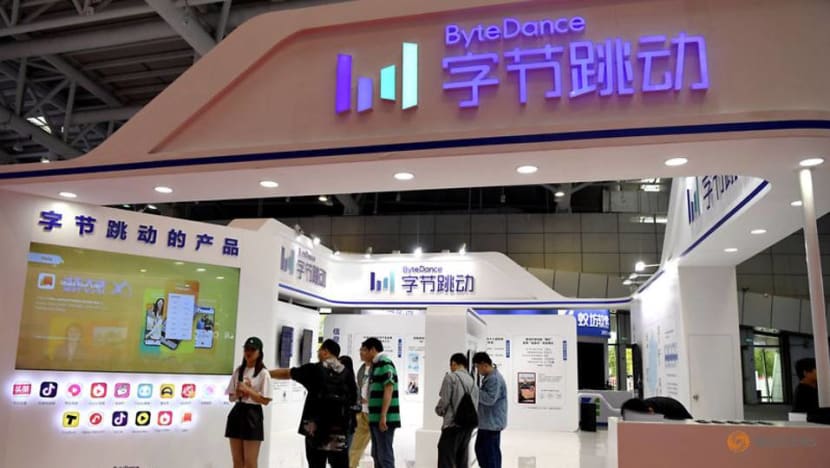commentary Commentary
Commentary: The new wave of Chinese tech champions you never heard of but should know
In China, many tech start-ups are quietly working away to create the next tsunami of disruption, says IMD Business School’s Dr Mark Greeven.

Composite picture of tech and manufacturing firms in China. (Photos: Reuters, AFP, Mediacorp)
SINGAPORE: While the world today is obsessed with Huawei and Alibaba, tens of thousands of unknown tech entrepreneurs are quietly building innovative businesses in China for the world.
No doubt Alibaba can boast of being the world’s most innovative retail empire, steadily expanding its reach in Southeast Asia, the Middle East and South America.
Huawei is a fascinating pioneer of telecommunication technology that has become a global innovator, albeit not without suspicion.
And yes, Tiktok has succeeded in gaining traction in key international markets where even the Alibabas of today are still largely struggling – like the United States.
READ: Commentary: Tik Tok, the most valuable Chinese start-up
READ: Commentary: Huawei's new OS looks promising but is no magic solution
But do they constitute a real force of innovation to reckon with?
THE FORCE TO RECKON WITH
In the course of my study of the Chinese tech start-up sector, I have identified about 200 unicorns.
Although these are numbers that make the average European economy jealous, they are far from becoming a truly disruptive force of innovation on a global scale, especially considering the size of the global economy and the incumbent forces that will respond with more fierce competition.
These number also assume survival and continued extrapolated growth for years to come.
READ: Commentary: Why are we playing chicken with global recession risks?

No, the real threat is in what we call tech underdogs. They pose three specific threats and may well represent a true tsunami of Chinese emerging innovators with global impact.
First, they are developing cutting-edge technology that meet world-class standards.
Second, the sheer quantity of tens of thousands of them mean there are too many to track, too small to identify.
Third, they have the potential to become hidden champions with global market leadership in their respective niches.
THE UNDISCOVERED TECH UNDERDOGS
Tech underdogs are young ventures of medium size with annual revenues of less than US$60 million. They develop cutting-edge proprietary technology that become intellectual property to create a stream of innovative products and services.
Many of them were founded by graduates returning to China from overseas, having gained advanced degrees in sciences and engineering and studied at elite universities in the United States and Europe.
READ: Commentary: Huawei still the standard bearer for 5G
They have gone under the radar as they have either not yet managed to scale up or are just not concerned with fame.
Dinglong Huang of Malong Technology and Bill Liu of Royole are just a few of the tens of thousands of elite entrepreneurs based on our estimates who have founded innovative tech ventures. And they are probably already considered to be well-known and have won many international awards, competitions and gained recognition.

READ: How China the copycat became a tech giant to rival the US
Malong Tech has received an investment from Accenture for their AI applications and has been teaming up with Microsoft for years.
In recent years, a Shenzhen-based startup, Royole, which develops electronic products capable of bending and folding, has entered the automotive market with a super-thin flexible display that serves as the interface of a car’s dashboard.
Bill has famously recruited American rapper Akon as Royole’s Chief Creative Officer, in efforts to market application of his super-thin film display technology.
And how about David Li, the founder of Hesai Technologies? With a PhD in Robotics from the University of Illinois at Urbana-Champaign, he is now running a leading global technology venture in laser sensing technology (LiDAR) for autonomous vehicles with customers in 18 countries.
Or take Richard Luan, the founder of high-performing nanotechnology ventures UniNano. Specifically, Richard’s nano-porous insulation material is used by large utilities providers. He also received an early investment from Softbank to scale up.
These are just some of the many tech underdogs. As our frequent interaction with global executives reveals, there are too many to track and frankly too small even to identify.
READ: Commentary: China’s rise this time is different

HIDDEN CHAMPIONS
But it is not only the sheer number of tech underdogs that constitute China’s emerging innovators. It is the fact that they may massively turn into real hidden champions.
Hidden champions are highly specialised companies usually operating in manufacturing and industries. Typically, they are among the top three players in their industries in China and globally.
They tend not to be well-known and their revenues are less than US$5 billion. Companies such as Lens Technology and Dongcheng M&E Tools are excellent examples.
READ: Commentary: A rising middle class and emerging tech giants - China’s decade of sweeping economic change
Lens Technology’s products, particularly its touch screen glass, is in one in five smartphones and tablets used all around the world – from Apple to Samsung.
Founded by female entrepreneur Qunfei Zhou in a backwater town in Hunan province in 2003, the company played a huge part in the smartphone revolution.
Another such company is Jiangsu Dongcheng M&E Tools, a manufacturer of power hand tools.

In the early 2000s, Dongcheng operated at the low end of the local market and was not seen as a serious rival to name-brand competitors like Bosch and Stanley Black & Decker. However, today it is China’s best-selling power-tool brand and it’s competitive in markets all over the world.
These hidden champions are companies without which global value chains in adhesives and consumer electronics would fall apart.
OVER 200 HIDDEN CHAMPIONS IN TECH
In our estimation there are today between 200 and 300 Chinese hidden champions. Now imagine that the tens of thousands of tech underdogs over time give rise to thousands of new hidden champions.
Then, we can speak of a true wave of innovators coming from China.
So when we read about another investment in Didi Chuxing’s mobility ecosystem or an acquisition of Alibaba in India, we should keep in mind that in the background away from the glare of the media spotlight is a substantial army of elite tech entrepreneurs slowly but steadily taking crucial positions in global value chains.
Otherwise one day we will wake up realising that Chinese companies such as Huawei, Alibaba or Didi Chuxing were not a threat after all but that we ignored a swarm of Chinese tech underdogs who today are not worthy of our worries.
Either it will leave us competing in the dark, developing a strong dependency on Chinese technology all this while without noticing, or missing the huge opportunity to leverage these emerging tech champions to be part of our innovation ecosystem.
Dr Mark Greeven is professor of Innovation and Strategy, IMD Business School in Switzerland and Singapore and co-author of Pioneers, Hidden Champions, Changemakers, and Underdogs: Lessons from China's Innovators.















